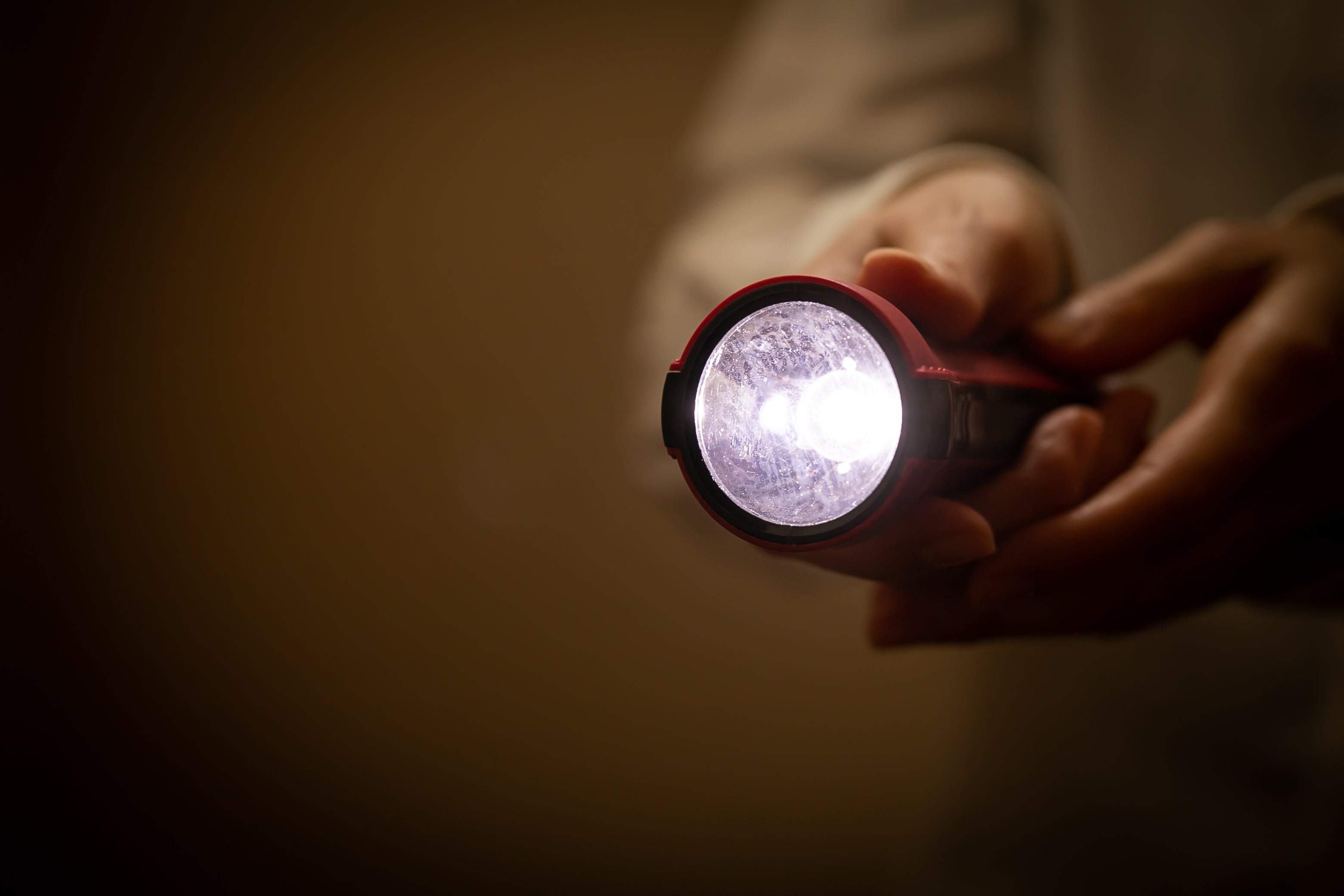When the lights go out during a storm or power outage, your flashlight becomes your lifeline. But which type is best — solar, hand-crank, or battery-powered? Each has unique strengths, and choosing the right one can mean the difference between staying prepared and being left in the dark. In this FEMA-aligned 2025 guide, eDisaster Systems breaks down the pros and cons of every type of emergency flashlight and shows you which models perform best when disaster strikes.
Why Every Emergency Kit Needs a Reliable Flashlight
When disaster hits — hurricanes, earthquakes, or blackouts — power failures can last hours or even days. Reliable lighting ensures safety, prevents injuries, and helps you signal for assistance. According to Ready.gov, every household should have multiple light sources in their emergency kit, including flashlights and lanterns with backup power options.
The Three Main Types of Emergency Flashlights
Here’s how each type works, and how to decide which fits your preparedness plan best.
1. Battery-Powered Flashlights
Battery-operated flashlights are the most common type — simple, bright, and easy to use. They’re ideal for quick emergencies and long-term storage.
✅ Advantages:
- Instant brightness with the push of a button
- High lumen output (ideal for large areas or outdoor use)
- Widely available batteries (AA, AAA, or rechargeable lithium)
⚠️ Limitations:
- Dependence on spare batteries
- Battery degradation over time
- Not ideal for long-term blackouts unless recharged
Recommended: Rechargeable LED Flashlight — combines power, brightness, and durability with USB charging support.
2. Hand-Crank Flashlights
Hand-crank flashlights are self-powered. You generate energy by turning a crank for a minute or two, providing light for several minutes — perfect when batteries die or solar charging isn’t possible.
✅ Advantages:
- Never needs external batteries or power
- Ideal backup for storms and earthquakes
- Often includes radio, USB charger, and emergency siren
⚠️ Limitations:
- Requires manual effort for recharging
- Not as bright as high-lumen LED flashlights
Recommended: Hand-Crank LED Lantern — delivers light, USB charging, and radio features in one compact emergency device.
3. Solar-Powered Flashlights
Solar flashlights harness energy from the sun through built-in photovoltaic panels. They’re great for long-term outdoor use and sustainable charging during prolonged outages.
✅ Advantages:
- Eco-friendly and rechargeable anywhere with sunlight
- Excellent for camping and long-term survival kits
- Often paired with power banks or radios
⚠️ Limitations:
- Dependent on sunlight exposure
- Charging time can take several hours
- Not ideal for rapid use in nighttime emergencies
Recommended: Solar-Powered Emergency Flashlight — stores up to 12 hours of light after a full charge and doubles as a USB power source.
Comparison Table: Solar vs. Hand-Crank vs. Battery Flashlights
| Feature | Solar | Hand-Crank | Battery |
|---|---|---|---|
| Power Source | Sunlight | Manual Crank | Replaceable Batteries |
| Run Time (avg.) | 8–12 hours | 10–15 minutes per crank | Varies by battery type |
| Brightness | Moderate | Low to Medium | High (LED) |
| Ease of Use | Easy but slow to charge | Requires effort | Instant-on |
| Best For | Long-term blackouts / outdoor use | Emergency backups | Quick indoor lighting |
How to Choose the Right Flashlight for Your Needs
- For Home Use: Choose a rechargeable LED flashlight for instant brightness.
- For Go Bags and Car Kits: Add a hand-crank lantern that doubles as a power source.
- For Outdoor or Off-Grid Survival: Include a solar-powered flashlight for long-term sustainability.
- For Flood or Marine Areas: Choose waterproof models that float and resist corrosion.
Expert Lighting Tips for Disaster Scenarios
- Keep multiple flashlights in different parts of your home — near beds, hallways, and exit doors.
- Store spare batteries in waterproof containers.
- Charge solar lights regularly, even in non-emergency periods.
- Include chemical glow sticks in your kit for instant backup lighting.
- During hurricanes or earthquakes, avoid open-flame candles to reduce fire risk.
Additional Emergency Lighting Products
- Emergency LED Strobe Light – visible beacon for search and rescue.
- Collapsible Solar Lantern – portable, rechargeable light for camping and home emergencies.
- 500W Portable Solar Generator – power essential lighting gear for hours.
Why Choose eDisaster Systems for Emergency Flashlights
At eDisasterSystems.com, we specialize in durable, field-tested gear designed for every type of disaster. From lighting and power equipment to complete emergency kits, our products are FEMA-aligned and built for reliability. Whether you’re preparing for hurricanes, earthquakes, or power outages, we provide the tools you need to stay illuminated and secure.
People Also Ask
About the Author
Mick Chan is a safety-supplies expert with over 15 years of hands-on experience specializing in OSHA compliance, emergency preparedness, and disaster-response planning. A Cal State LA graduate, Mick helps households and businesses across California choose the right survival equipment for every scenario. His work bridges FEMA’s safety guidelines with practical, real-world readiness solutions.

